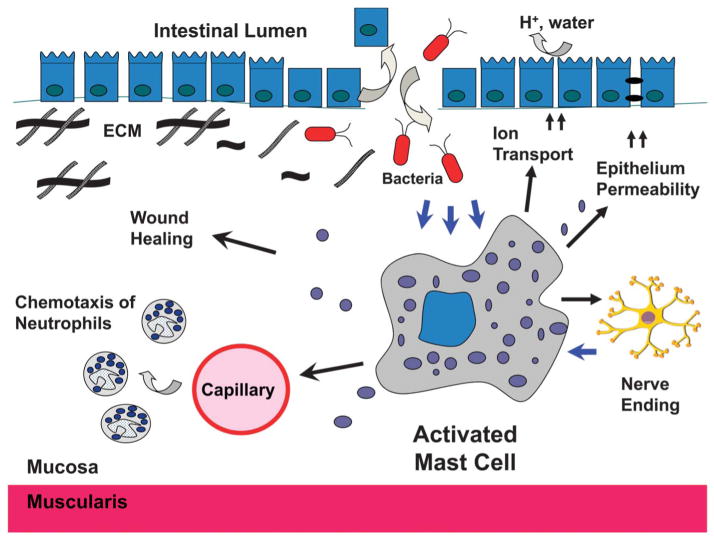FIGURE 4.
MCs have diverse functions in the intestine in both health and disease. MCs are tissue-resident immune cells that provide protection from invading organisms. However, they can be inappropriately activated in IBD, resulting in the release of mediators that contribute to the pathology of the GI tract. Depicted is a breach of the epithelium barrier, which results in the activation of a mucosal MC by bacterial products that make their way into the mucosa. The diverse arsenal of mediators produced and released by the activated MC leads to the accumulation of neutrophils and other inflammatory cells, further disruption of the epithelial barrier, increased ion/water transport, activation of the enteric nervous system, and ultimately wound repair and tissue remodeling.

